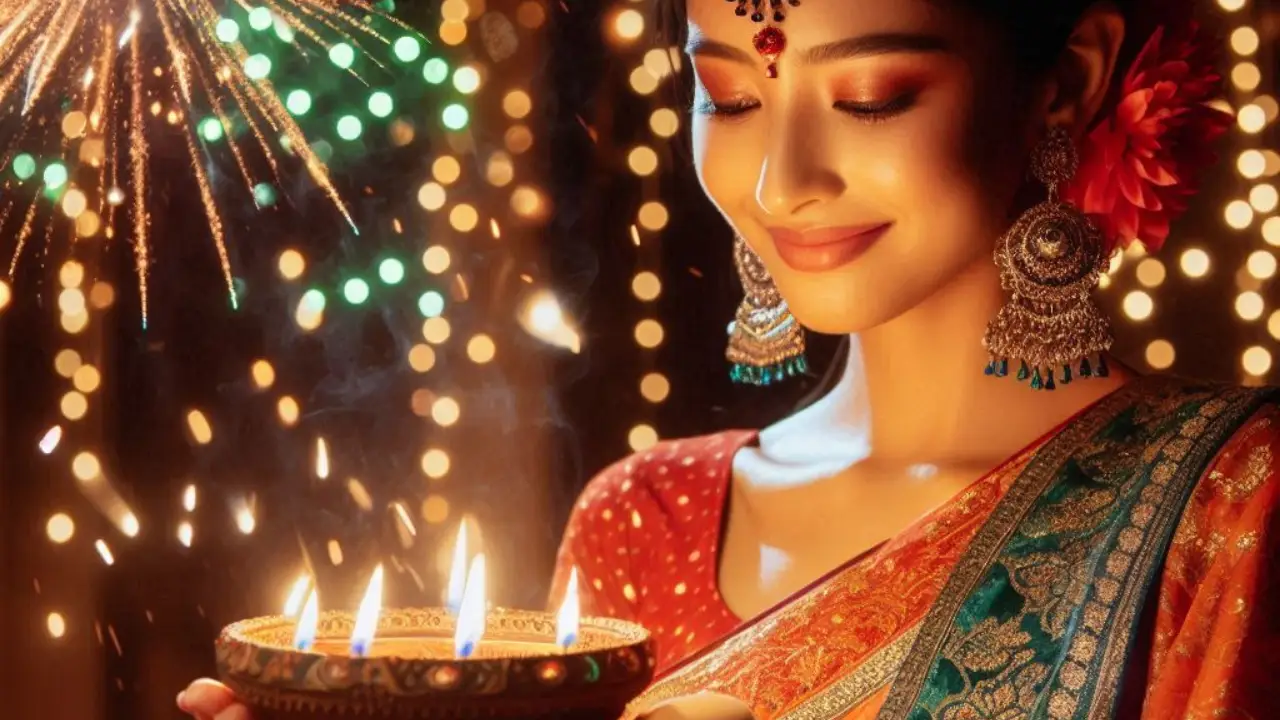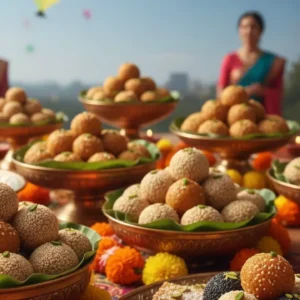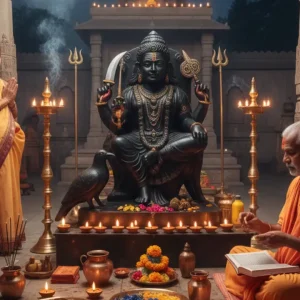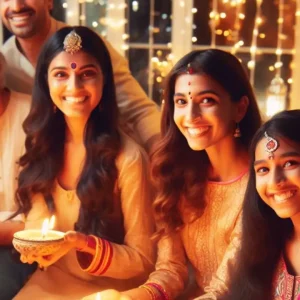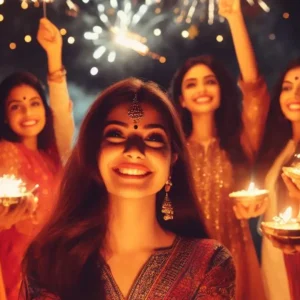Diwali is one of the most cherished and widely celebrated festivals in Hindu culture. It is often called the “Festival of Lights” because homes, streets, and temples glow with lamps, candles, and fireworks during this time. More than just a visual spectacle, Diwali holds deep spiritual significance. It symbolizes the victory of light over darkness, good over evil, and knowledge over ignorance. But there’s another important aspect to Diwali celebrations: welcoming the goddess Lakshmi, the deity of wealth, prosperity, and fortune, into our homes.
In this blog, I’ll guide you through how to celebrate Diwali authentically, ensuring you experience both the joy and the spiritual significance that this festival offers.
Preparing for Diwali: Cleaning and Decorating
One of the most essential aspects of celebrating Diwali begins days or even weeks before the festival itself. The idea is to welcome Lakshmi by preparing your home so that it’s both clean and welcoming. According to Hindu tradition, goddess Lakshmi only enters homes that are neat and tidy.
Start by decluttering. Cleaning every room and space is a ritual in itself. Many believe that dust and dirt represent negative energies, and by cleaning your home, you’re essentially sweeping away bad luck.
After cleaning, it’s time to decorate. People often place Rangoli, intricate designs made with colored powder, flowers, or rice, at their home’s entrance. These designs invite Lakshmi and bring positive energy. Marigold flowers and mango leaves, with their bright colors, are commonly used to ward off negativity.
Lighting Diyas and Setting Up Lights
The lighting of diyas (oil lamps) is a central part of Diwali celebrations. Diya lights symbolize hope and the victory of light over darkness. Traditionally, earthen lamps are filled with oil and a cotton wick is used to light them.
On the evening of Diwali, these lamps are placed around the home, in windows, doorways, and near shrines. Families also decorate their homes with electric lights, candles, and lanterns to amplify the festive atmosphere.
A real-life example is from my own childhood. My grandmother would place one diya at the front door and another in the temple room to ensure that our house stayed blessed all year long. It was her way of ensuring that Lakshmi felt welcomed and would bless the household.
Lakshmi Puja: Welcoming the Goddess of Wealth
One of the most important rituals during Diwali is the Lakshmi Puja. This ritual is performed to honor and welcome the goddess Lakshmi into our homes. The belief is that on this auspicious night, Lakshmi roams the earth and visits homes that are clean, pure, and decorated in her honor.
To perform the puja, start by setting up a small altar. Place a picture or idol of Lakshmi at the center, often alongside images of Lord Ganesha, who removes obstacles and brings good fortune.
During the puja, offer flowers, sweets, fruits, and money to Lakshmi. It’s common to chant mantras or read passages from holy texts that praise the goddess. A simple offering of sweets and prayers can also suffice if you are short on time.
Sharing Sweets and Gifts: Building Bonds
Exchanging sweets and gifts is an important part of Diwali celebrations. It’s not just about the physical act of giving but about strengthening relationships. Diwali is a time to show gratitude to your family and friends by offering them tokens of appreciation.
Sweets like ladoos, barfi, and jalebi are typically prepared at home or bought from local sweet shops. It’s customary to give these sweets along with small gifts as a symbol of goodwill and affection.
I remember how my family used to make dozens of sweet boxes for our neighbors and friends. My mother insisted on personally delivering them, which brought us closer to our community. This sense of togetherness is something I cherish every Diwali.
Bursting Firecrackers: The Joy of Celebration
Firecrackers are synonymous with Diwali. Children and adults alike enjoy lighting sparklers, fireworks, and crackers to celebrate the festival. The sound and light are believed to drive away evil spirits and negativity.
However, it’s essential to celebrate responsibly. With growing environmental concerns, many families now prefer eco-friendly firecrackers or limit their usage to reduce pollution. A small fireworks display can still bring the same amount of joy while being mindful of the environment.
The Story Behind Diwali: Why We Celebrate
Each region in India has its own story that ties to Diwali celebrations. However, the most widely known narrative is that of Lord Rama’s return to Ayodhya after 14 years of exile. After defeating the demon king Ravana, Rama returned to his kingdom with his wife Sita and brother Lakshmana. The people of Ayodhya lit lamps throughout the city to celebrate his victory and welcome him home.
Another important story is that of the Pandavas, who returned from their 12-year exile during Diwali. Both these stories highlight the victory of good over evil.
However, the spiritual meaning of Diwali extends beyond these tales. Diwali marks the new moon day of Kartika, making it an auspicious time to honor Lakshmi. The lighting of diyas and lamps represents the dispelling of ignorance and the illumination of knowledge.
Five Days of Diwali: Understanding the Festival’s Structure
Diwali isn’t just a one-day event; it is celebrated over five days, each with its own significance.
Dhanteras: The first day, dedicated to wealth, health, and prosperity. People buy precious metals and utensils as a sign of good fortune.
Naraka Chaturdashi: This day celebrates Lord Krishna’s victory over the demon Narakasura.
Diwali: The main day of celebration when Lakshmi Puja is performed, homes are lit with diyas, and sweets are exchanged.
Govardhan Puja: Celebrated to honor Lord Krishna for lifting the Govardhan Hill to protect the villagers from a storm.
Bhai Dooj: A day dedicated to the bond between brothers and sisters.
How Will You Celebrate Diwali?
This Diwali, take a moment to reflect on its deeper meaning. Whether you’re lighting diyas, performing Lakshmi Puja, or simply sharing sweets with loved ones, try to embrace the spiritual significance of the festival. How do you plan to make your Diwali celebrations special this year? I’d love to hear your thoughts and stories in the comments below!

